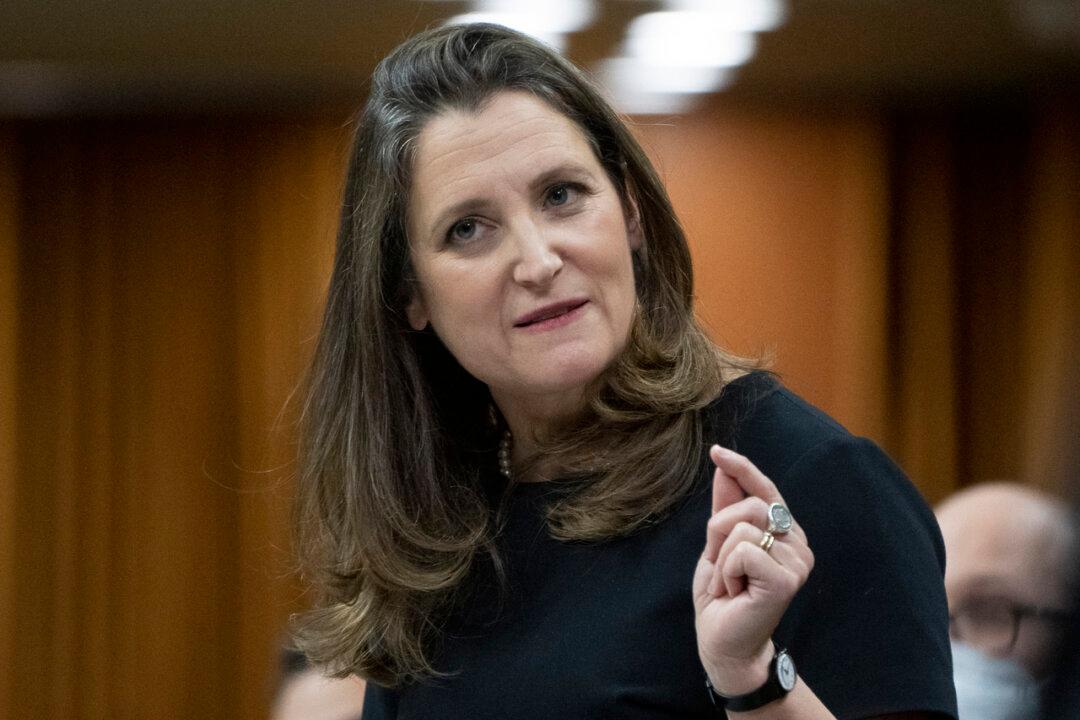Deputy Prime Minister Chrystia Freeland is defending the Liberal government’s use of the Emergencies Act to deal with protesters in Ottawa, saying the protesters are trying to “usurp the authority” of the democratically elected government.
Freeland made the remarks on Feb. 18 in a virtual press conference updating the government’s actions to end the protest, which began on Jan. 29. She was joined by several cabinet ministers, including Public Safety Minister Marco Mendicino, Justice Minister David Lametti, and Minster of Emergency Preparedness Bill Blair, as well as Government House Leader Mark Holland.





